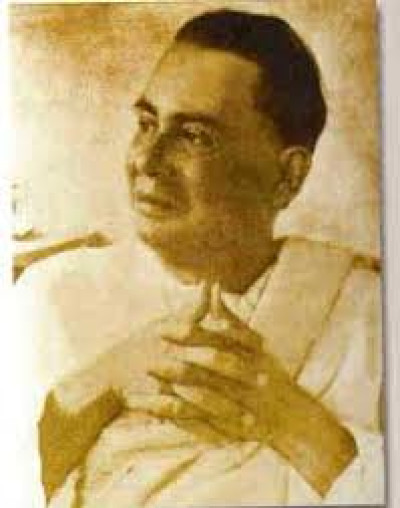Life & Legacy
With his deep knowledge across multiple disciplines, Barua contributed significantly to the modernization of Assamese thought, while ensuring the preservation of its cultural and literary roots.
Early Life and Academic Journey
Birinchi Kumar Barua was born in 1908 in Tezpur, Assam. A brilliant student with a thirst for knowledge, he pursued higher education in Indology and Linguistics, ultimately earning a D.Phil. from the University of London.
His exposure to Western academia, combined with his grounding in Indian philosophy and Assamese tradition, made him one of the most well-rounded intellectuals of his generation.
Contributions to Literature and Culture
Dr. Barua’s literary and academic career is marked by extraordinary versatility. His works cover a wide spectrum — from creative literature and folklore studies to historical research, linguistic analysis, and philosophical thought.
As a Novelist and Playwright
Birinchi Kumar Barua’s fictional works are notable for their rich cultural backdrop, social commentary, and exploration of Assamese identity.
Notable works include:
-
“Sankardeva” – A biographical novel on the 15th-century saint-scholar
-
“Ranga Chaneki” – A symbolic play reflecting cultural conflicts
-
Short stories and satirical pieces that reflect Assamese society and its transformations
As a Folklorist and Historian
Barua is considered one of the pioneering folklorists of Assam. His research and publications on Assamese folklore, oral traditions, and myths have become foundational references in Indian folklore studies.
His historical writings delved into the cultural evolution of Assam, the Ahom dynasty, and the philosophical systems of ancient India, making complex subjects accessible to general readers.
As a Linguist and Educationist
Barua made significant contributions to Assamese linguistics and language standardization. He worked on the evolution of the Assamese script and phonetics, and his essays on comparative linguistics remain academically relevant.
He also served as the first Head of the Department of Assamese at Gauhati University, where he mentored a generation of scholars and established Assamese studies as a serious academic discipline.
Leadership and Administration
Birinchi Kumar Barua served as:
-
Vice-President of Asam Sahitya Sabha
-
Chairman of several cultural and academic bodies
-
Educationist and policy contributor in post-independence Assam
His administrative abilities were matched by his cultural vision, which aimed to integrate education with Assamese identity and heritage.
Awards and Legacy
Although he passed away in 1964, Birinchi Kumar Barua’s intellectual and cultural legacy continues to thrive.
-
Birinchi Kumar Barua Memorial Lectures are held regularly to honor his memory.
-
Institutions and awards have been named after him across Assam.
-
His books are widely taught and referenced in Assamese literature, folklore, and cultural studies.
Conclusion
Birinchi Kumar Barua was not just a scholar or a writer — he was a complete institution in himself, whose vision, intellect, and creativity laid the foundation for modern Assamese cultural thought.
His legacy stands as a bridge between tradition and modernity, between folklore and formal scholarship, between local identity and universal values.
For anyone interested in the literary, historical, and cultural soul of Assam, Birinchi Kumar Barua's life and works are indispensable.
